In Syunik Province, the R2D Syunik project is actively supporting the development of community infrastructure – including the provision of drinking and irrigation water, green energy, and more – as well as assisting small and medium-sized enterprises (SMEs).
The Recovery, Resilience, Development for Syunik (R2D Syunik) project is implemented within the framework of the “Resilient Syunik Team Europe” initiative by the Austrian Development Agency, in cooperation with various stakeholders, including local self-governments, state institutions, civil society organisations, and private companies. The project is funded by the European Union with contributions from the Austrian Development Cooperation.
The main goal of R2D Syunik is to boost the competitiveness of local SMEs and support the restoration of small-scale community infrastructure.
Needs assessment and viable solutions
The R2D Syunik project was officially launched in January 2023 and will run for five years. With a total budget of €11 million, it focuses on three core areas: improving the business environment for micro, small, and medium-sized enterprises and enhancing private sector competitiveness, developing resilient, green communal infrastructure, and coordinating the efforts of international and local organisations operating in the region for regional development of Syunik Province.
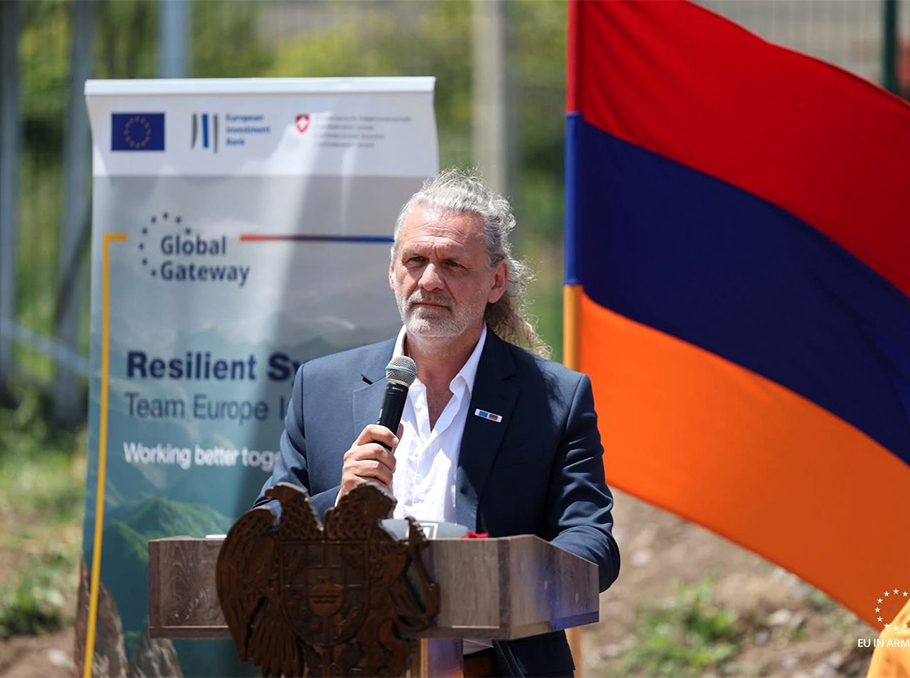 Jarek Zarychta
Jarek ZarychtaPhoto: EU in Armenia
Jarek Zarychta, team leader of R2D Syunik, together with the team, regularly visits the province, meeting with regional and local authorities and speaking with residents to understand existing challenges and identify viable solutions.
The early phase of the project focused on preparatory work and in-depth needs assessments, while the end of 2024 marked the beginning of full-scale implementation.
A thriving business ecosystem – from small to big
A total of €3.5 million is allocated for initiatives supporting small and medium-sized enterprises (SMEs). The project focuses on equipping entrepreneurs with practical skills, providing technical support, and improving access to financial and business advisory services. These efforts aim to empower beneficiaries to build sustainable businesses and continue growing beyond the project's duration.
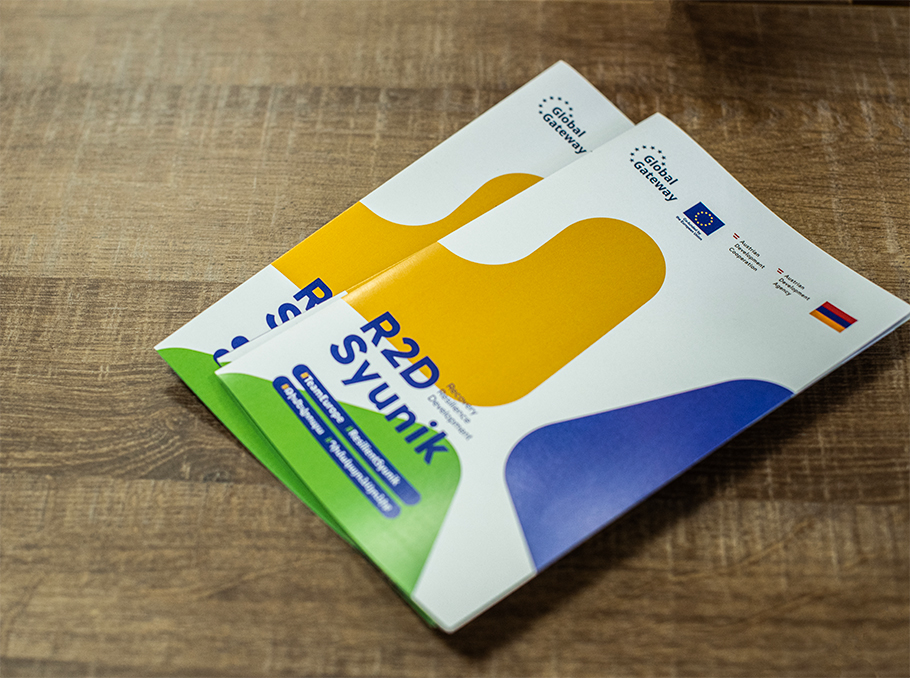
Photo: Mediamax
“We are working for long-term impact,” emphasizes Zarychta. “We want to see real change by the time the project concludes – change that people can genuinely feel. By supporting both small businesses and more established companies, and by creating a robust, functional business ecosystem, we strive to help people live better lives.”
Based on early-phase research, three priority sectors were identified: agri-processing, manufacturing, and tourism/hospitality. According to Zarychta, the initiatives span the entire Syunik region, with particular attention paid to communities in northern Syunik, where the need for support is greater.
To meet its ambitious goals, the Austrian Development Agency is partnering with strategic local organizations whose on-the-ground expertise helps ensure maximum impact.
Currently, it is working with the Jinishian Memorial Foundation and the WINNET Goris Development Foundation, both tasked with delivering capacity-building training sessions and running small grant competitions. Negotiations are also underway to finalize a contract with a third strategic partner.
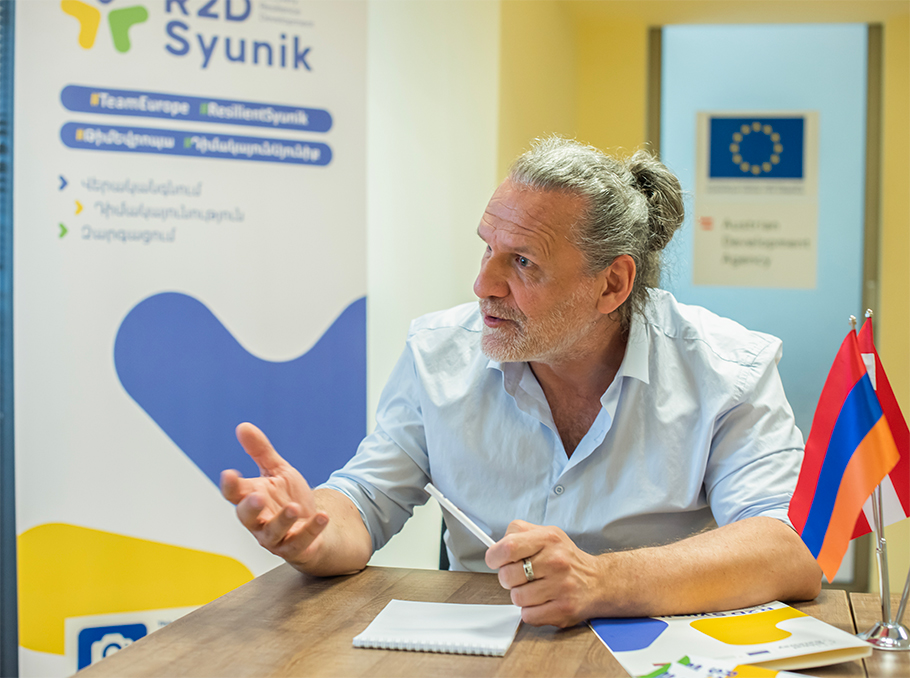
Photo: Mediamax
Another important target group consists of developing market actors – primarily small-sized businesses with potential to grow – which will also receive tailored development support. A fourth target group within the project’s business sector development component includes sector support organizations that contribute to development of the sustainable regional labour market through modern vocational education and competence-oriented capacity-development programmes, such as local educational institutions and NGOs. They will likewise benefit from project assistance.
Supporting the launch of small businesses
In collaboration with the project’s strategic partners, business skills development trainings are being held for residents of Syunik Province who are 18 years or older and either already operate in one of the project’s three target sectors or have a business idea.
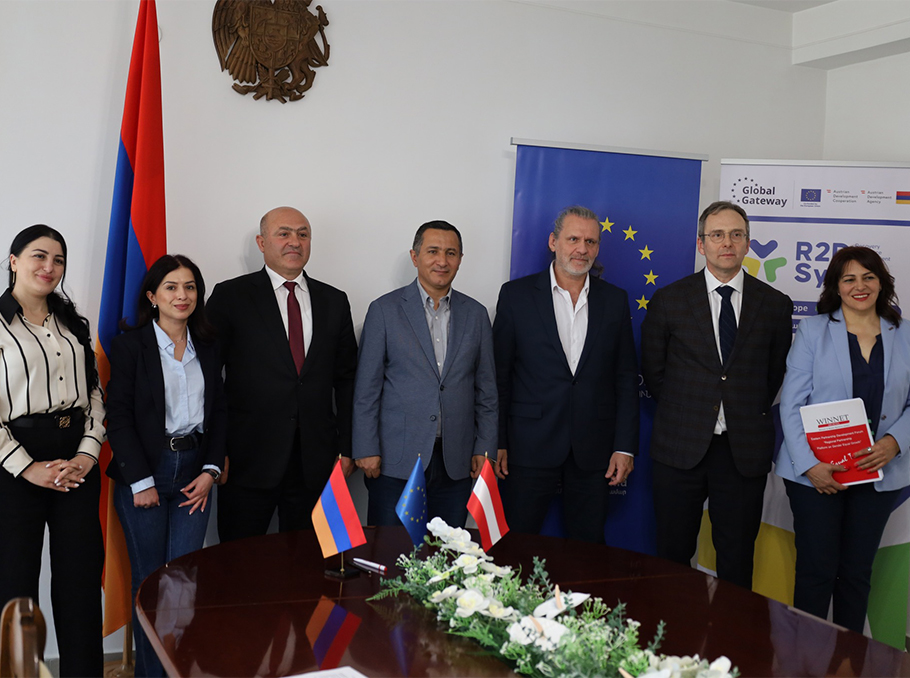
Photo: Syunik Governor's Office
With knowledge from experts and ongoing advisory support, participants will develop competitive business models. Following this, a financial support competition will be announced among them to help implement the most promising ideas.
According to Liana Sargsyan, Deputy Director and Economic Development Programme Coordinator at the Jinishian Memorial Foundation, 99 individuals are currently participating in the business model development trainings.
“We plan to hold pitching sessions of finalized business models in September. Afterwards, at least 34 beneficiaries selected through a competitive process will receive financial support – each in the form of essential equipment and specialized furniture with a maximum equivalent of 4 million AMD,” she explains.
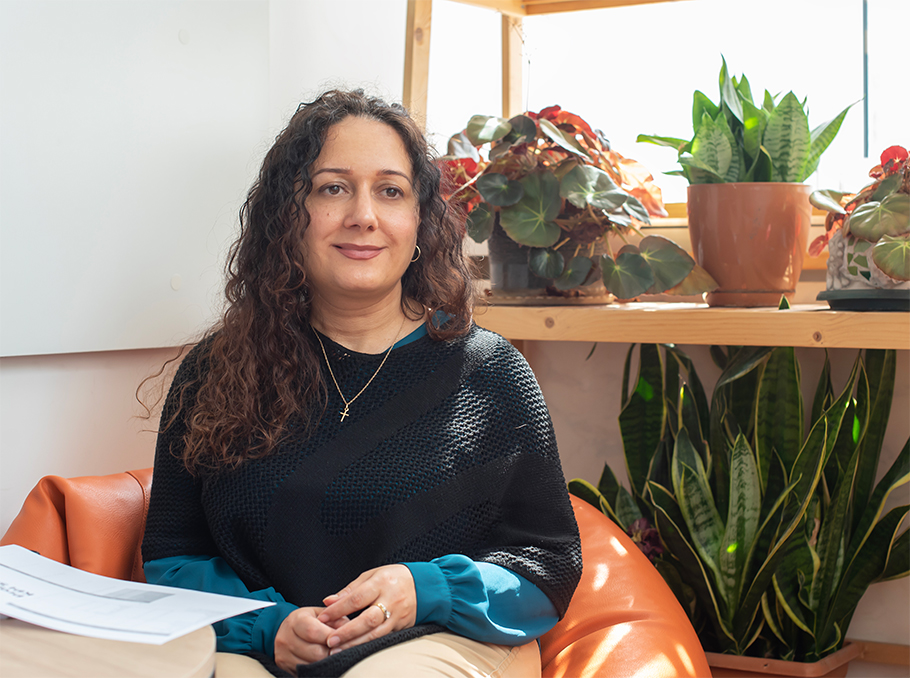 Liana Sargsyan
Liana SargsyanPhoto: Mediamax
The other strategic partner, WINNET Goris Development Foundation, will launch its own round of trainings starting in July. In this case, the target group is women only.
Not just a wish, but a real need
Among the participants of the training sessions by Jinishian Memorial Foundation is 25-year-old Davit Sargsyan from the village of Davit Bek in Kapan community. After completing his higher education in Yerevan, he returned to his home village, determined to use his knowledge for the development of the community.
“In recent years I have been engaged in animal farming – rabbit-breeding, poultry-breeding, pig-breeding – which helped me gain hands-on experience in animal husbandry sector,” says the young farmer.
“That was when the idea for my business took shape: to launch a compound feed processing production. This is what I proposed in my application for the competition within the R2D Syunik project.”
David says the trainings have been highly effective, helping participants understand the nuances of business management – from where to start and what to focus on, to how to shape a strong value proposition.
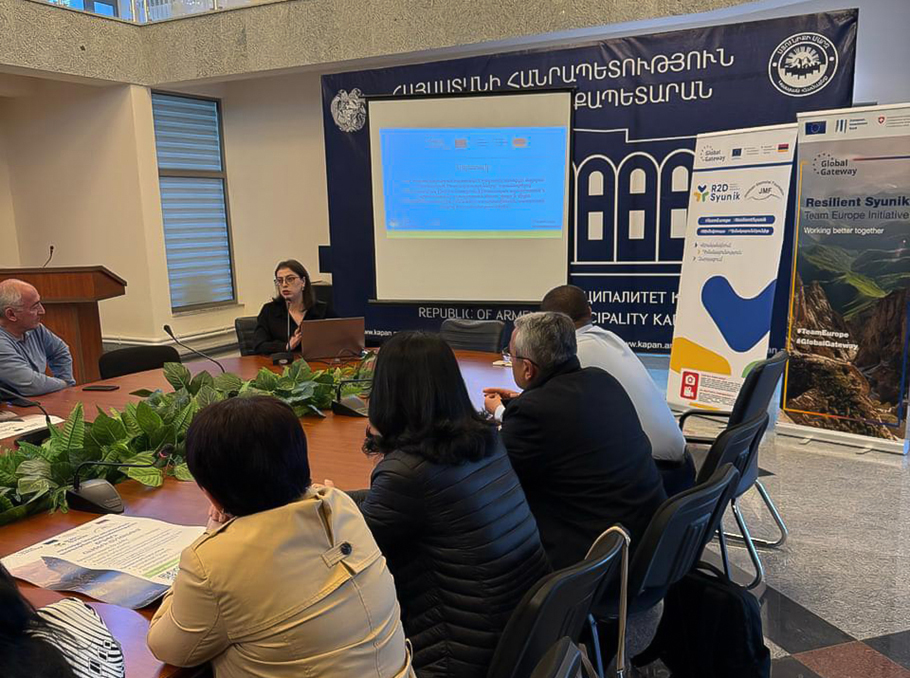
Photo: Jinishian Memorial Foundation
“There is a real need for grant projects like this, especially in border villages. I will do my best to win the grant and launch this business – not just for myself, but also to inspire others with my example,” says David, who draws inspiration from the stories of well-known entrepreneurs who, despite early failures, never gave up.
“Right now, unemployment is a serious issue in rural areas. Many people involved in agriculture are also struggling due to the shortage of pasture lands. For many residents here, receiving a financial support is not just a wish – it is a need,” stresses David Sargsyan.
Lights on, water running, resilience growing
The second strategic direction of the R2D Syunik project – improving sustainable, green community infrastructure – involves technical and financial support for the design and implementation of small-scale infrastructure projects. It is carried out in cooperation with the Syunik Governor’s Office and all seven municipalities of the region.
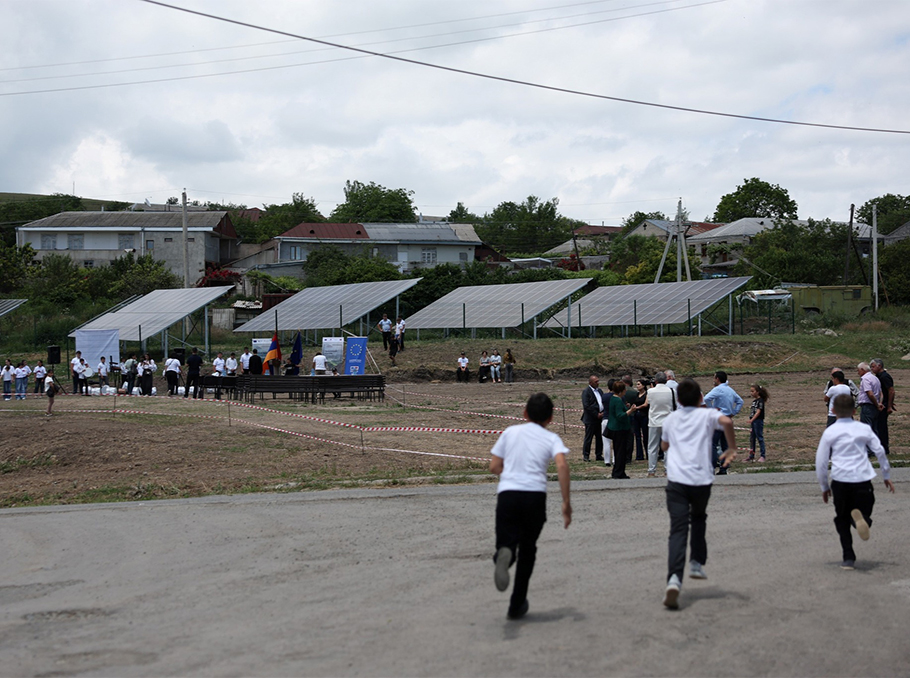
Photo: EU in Armenia
As a result of this collaboration, the real needs of residents were identified and concrete actions agreed upon. Some projects have already been completed, while others are in progress. These efforts mainly focus on improving drinking and irrigation water supply, green energy, and sewage infrastructure.
On June 19, EU Ambassador Vassilis Maragos attended the official opening of two major infrastructure projects in Tegh community, aimed at enhancing local resilience. With co-financing from the European Union and the Austrian Development Agency, an 80 kWh solar photovoltaic station was installed to promote sustainable energy use and serve the needs of the Tegh community – including powering a modern irrigation system. Another solar station has also been installed in Sisian.
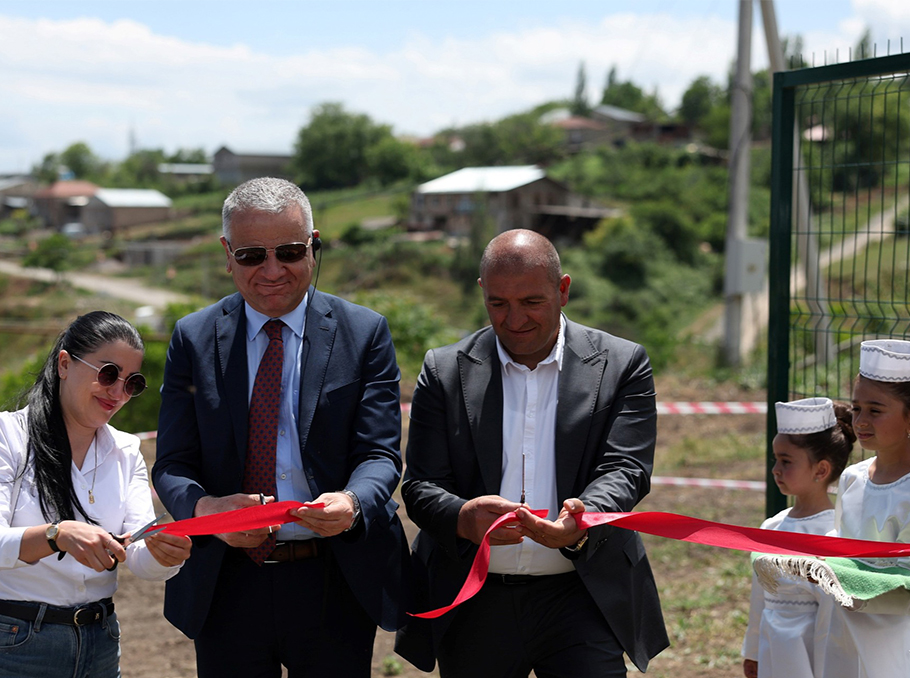 Vassilis Maragos at the opening of solar photovoltaic station
Vassilis Maragos at the opening of solar photovoltaic stationPhoto: EU in Armenia
Syunik Governor Robert Ghukasyan highly values the projects aimed at improving water supply and green energy infrastructure in the region.
“When we talk about development priorities for Syunik, water – both drinking and irrigation – is always at the top of the list. It concerns almost every rural settlement. Access to water is vital not only for ensuring dignified living conditions but also for developing agriculture. Therefore, any project aimed at improving water supply is of great value and deserves recognition,” says Robert Ghukasyan.
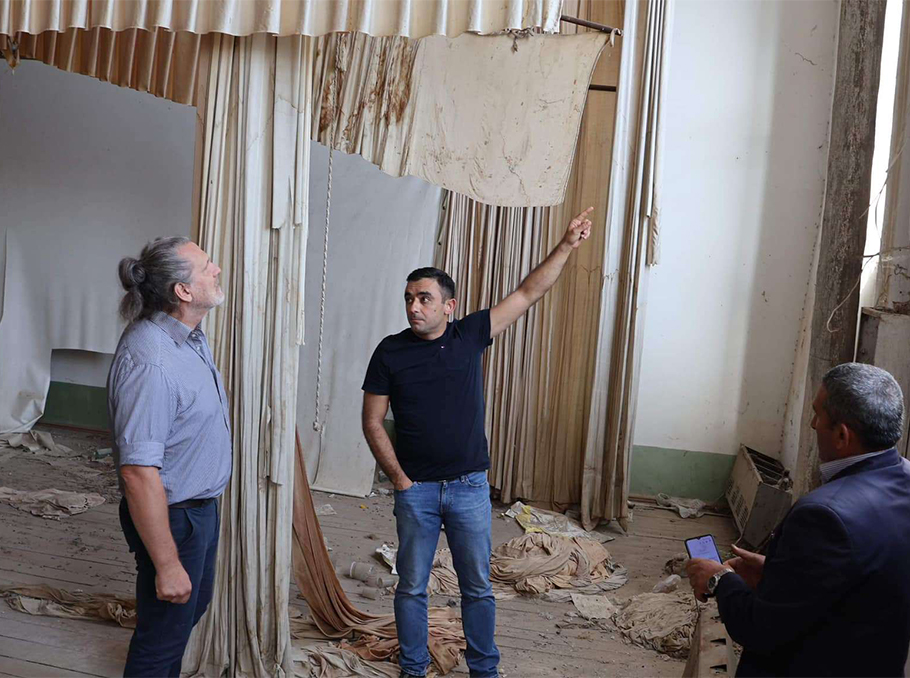
Photo: ADA
He also emphasizes that the goal is not to carry out one-off projects with international funding, but to achieve long-term, tangible, and self-sustaining results that will continue to grow even after the project ends.
Another subproject in the Tegh community currently underway is the installation of a 7.5 km-long lighting system on the Tegh-Karashen road.
“Installing lighting systems, especially on border roads, is essential as it helps residents feel safer,” emphasizes Zarychta.
Although the project originally planned for 15 infrastructure subprojects, Zarychta hopes that efficient budget management will allow for more, even 20.
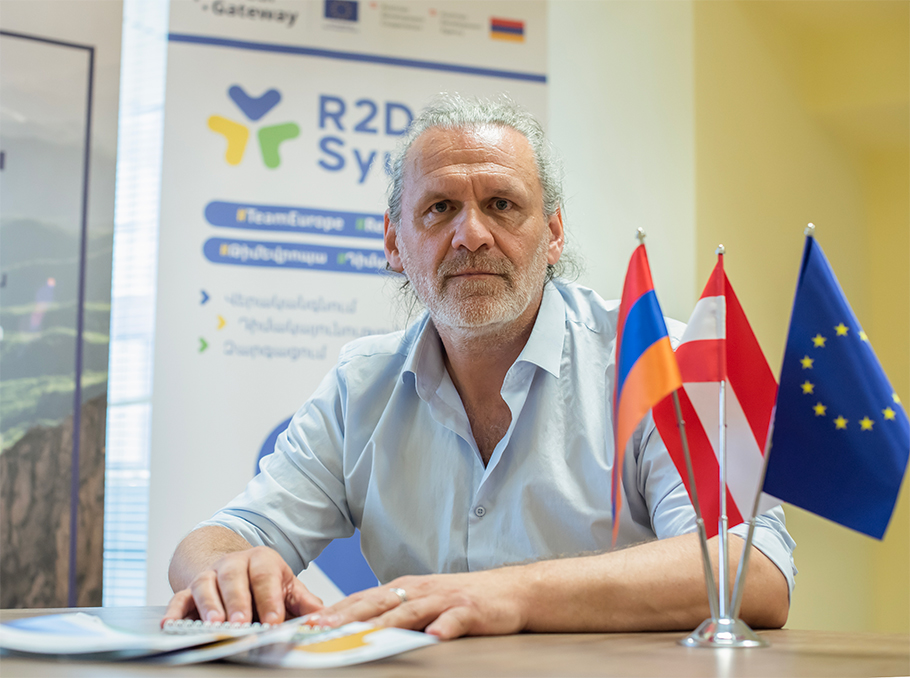
Photo: Mediamax
Within the scope of infrastructure improvement, R2D Syunik has also contributed to a large-scale infrastructure development project. As part of the Resilient Syunik Program (RESYP) – a framework loan from the European Investment Bank (EIB), the Ministry of Education, Science, Culture and Sport of RA has initiated the consolidation of four vocational schools (two in Sisian and two in Kapan) into two modern institutions, one in each town. The R2D Syunik project plays a crucial role in this initiative by assessing the needs and preparing the preliminary technical documentation required for the rehabilitation and construction works.
“I believe the R2D Syunik project will truly help improve life in Syunik – so people stay, build businesses, and see a future in their own communities,” says Jarek Zarychta, and adds in conclusion:
“There is a big difference between spending money and investing it – and what we are trying to do here is make the best possible investment in Syunik’s long-term resilience.”
Gaiane Yenokian
The “Resilient Syunik” Team Europe initiative is the joint undertaking of the European Union, the European Investment Bank, the European Bank for Reconstruction and Development, EU Member states - Austria, Czechia, Estonia, Finland, France, Germany, Lithuania, the Netherlands, Poland, Sweden, and Switzerland also joining as an external partner. The initiative aims to contribute to the sustainable socioeconomic development of the Syunik region.
This article was published with the financial support of the European Union. Its content is the sole responsibility of Mediamax and does not necessarily reflect the views of the European Union.

















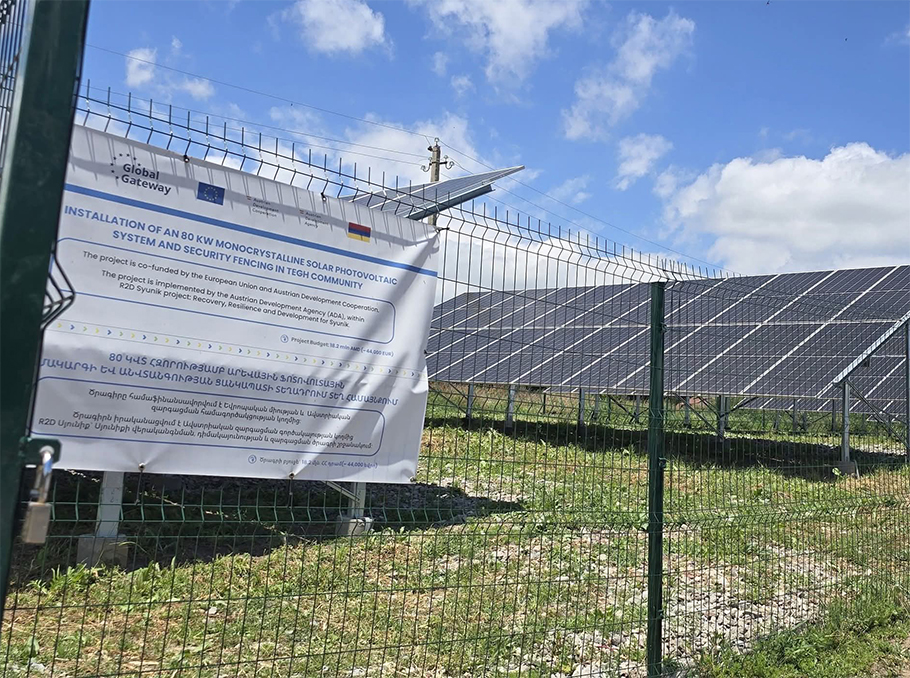

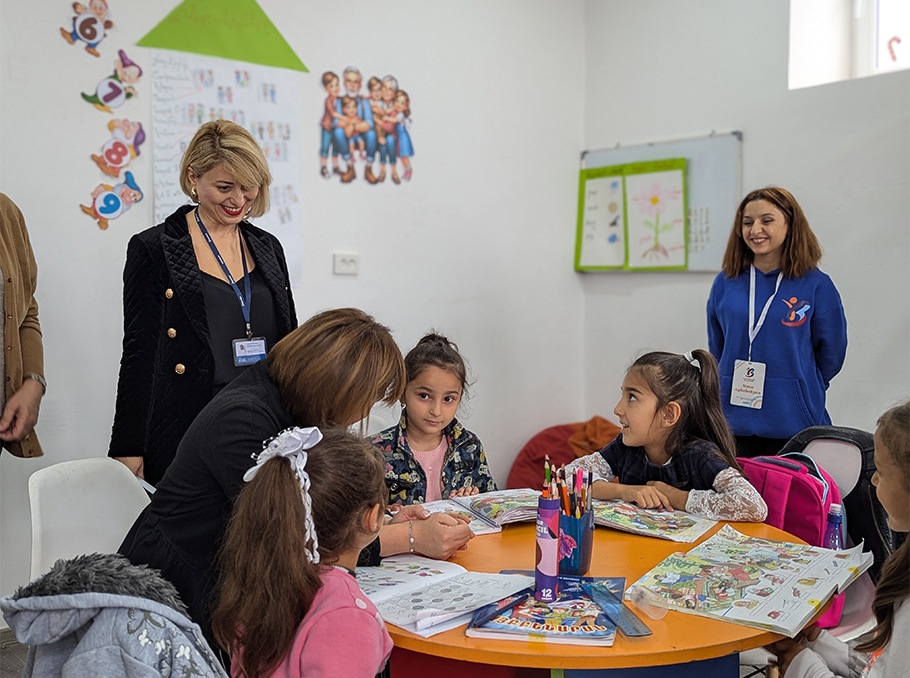
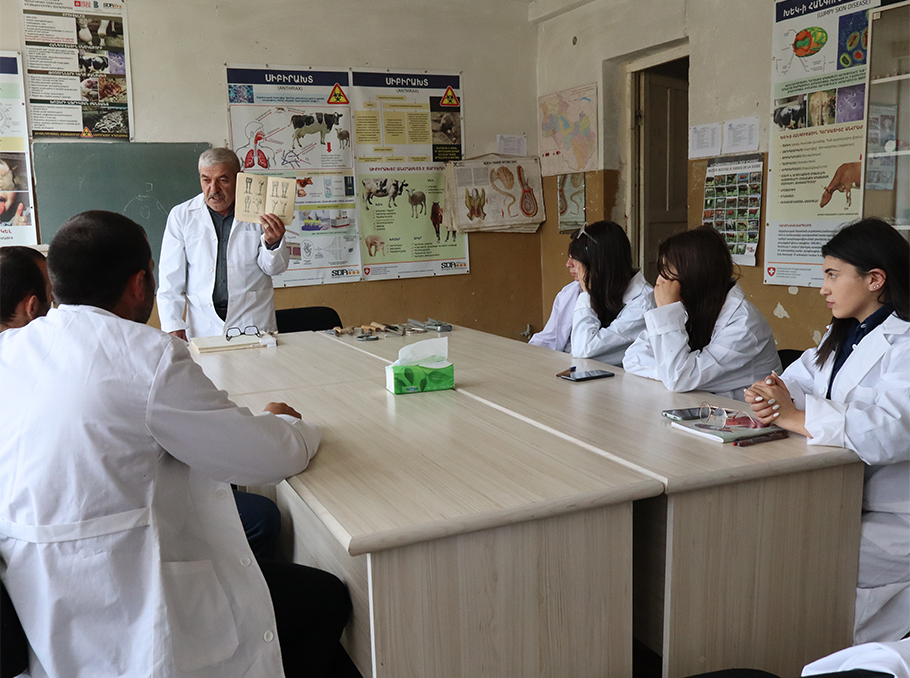
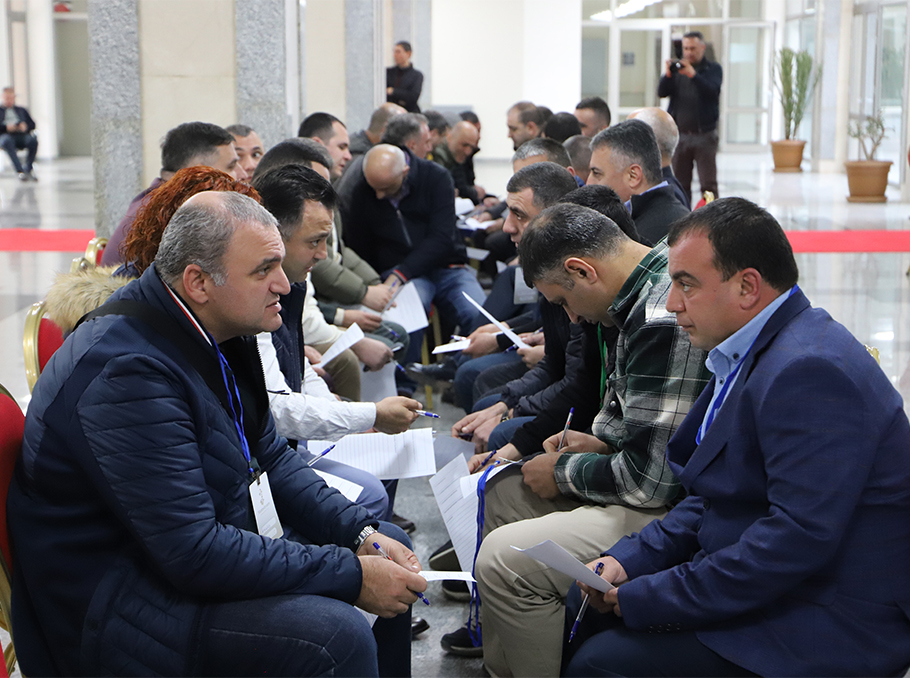
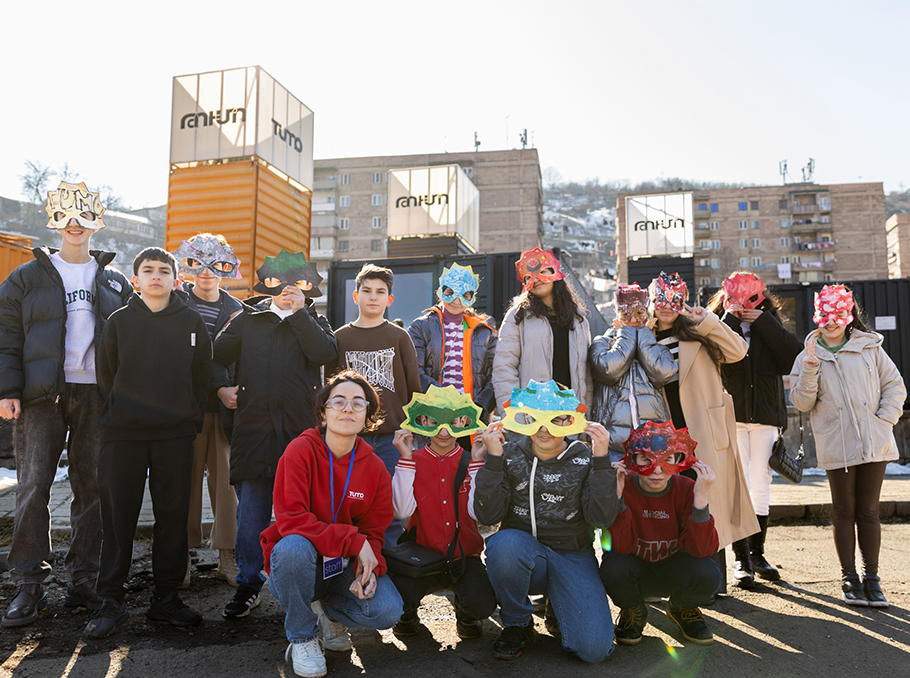






Comments
Dear visitors, You can place your opinion on the material using your Facebook account. Please, be polite and follow our simple rules: you are not allowed to make off - topic comments, place advertisements, use abusive and filthy language. The editorial staff reserves the right to moderate and delete comments in case of breach of the rules.